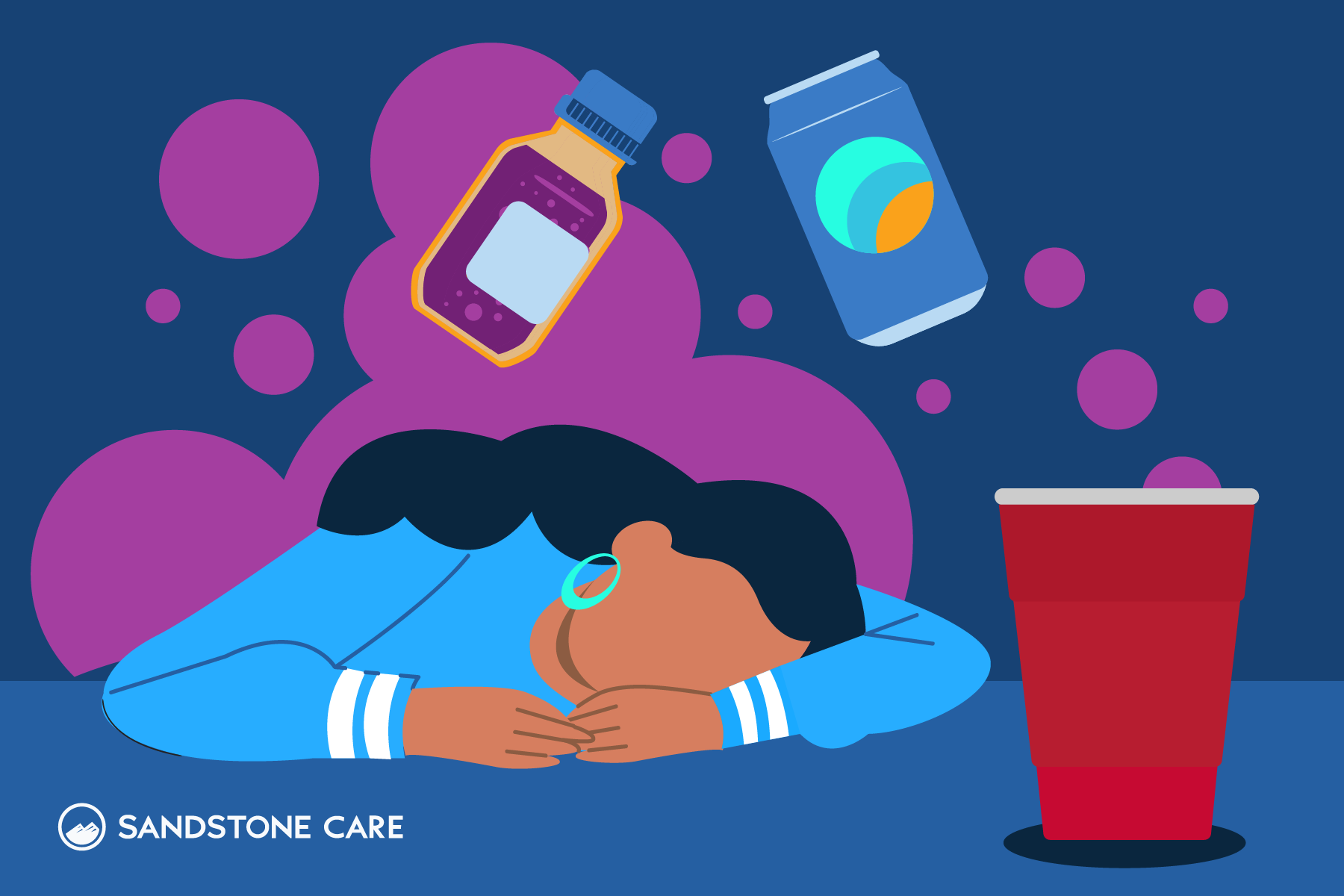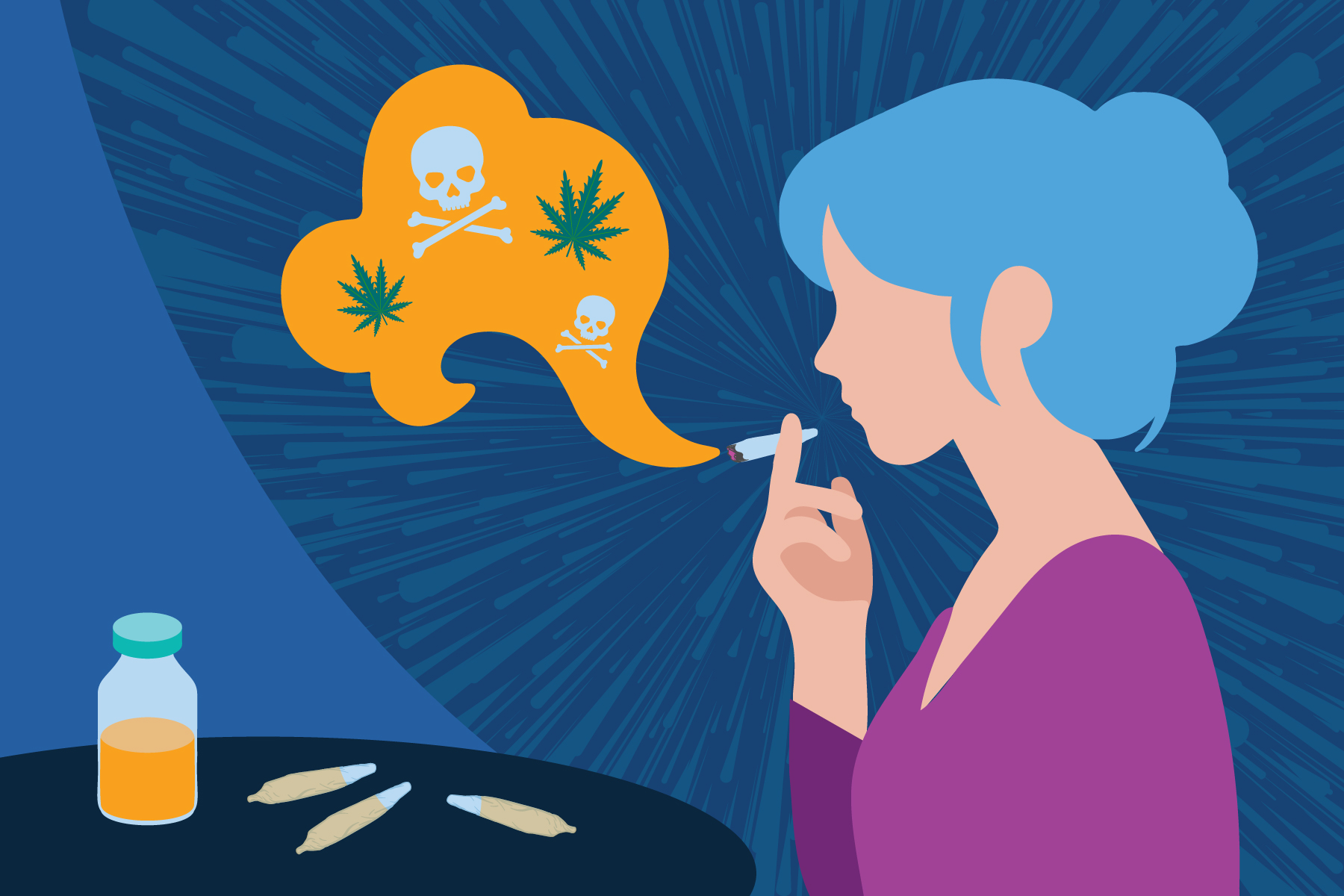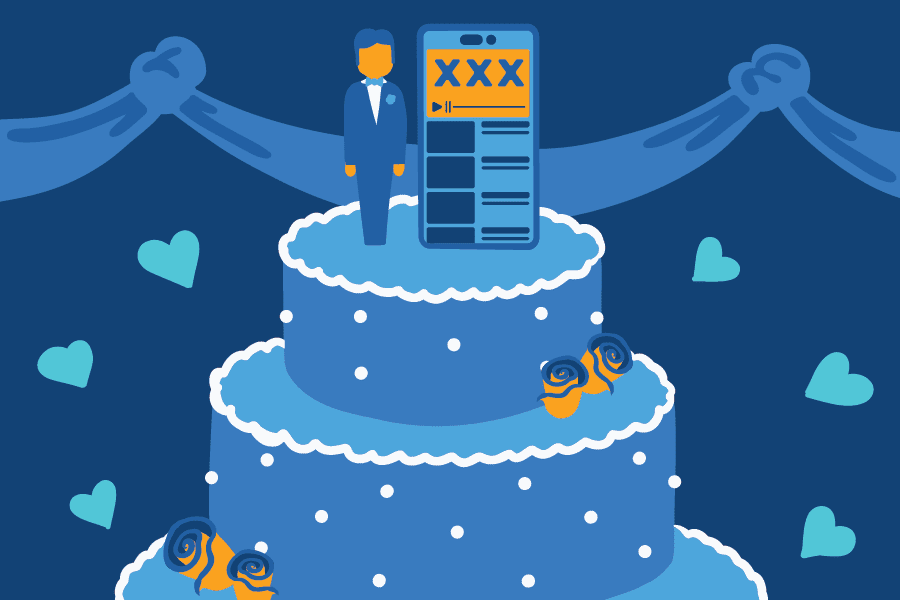Cough Syrup Abuse
Parents and caretakers might be surprised to find out that some of the most commonly misused drugs by teenagers and young adults are the cough and cold medicines that are sitting in their own medicine cabinet.
Some cough and cold medicines contain codeine, promethazine, dextromethorphan (DXM) and other narcotics that can make people feel high or relaxed.
Common brands include Tylenol-Codeine Elixir, Robitussin, Phenergan, Dimetapp DM, Nyquil, Robitussin, Theraflu and Vick’s Formula 44. Store brands of these cough and cold medicines, such as Wal-Tussin and Wal-Flu, also contain high-inducing drugs.
Many young people take large amounts of cough syrup and other cold medicines to experience these effects. In 2017, a University of Michigan study found that 3 percent of teens used cough syrups to get high in the previous year.
These medicines are abused frequently because they’re inexpensive and easy to obtain. Teens and young adults also abuse them because of the common (but false) perception that they are safe.
When these drugs are abused, they can be highly dangerous and cause damage to the brain, heart, nervous system and other vital organs.
Lean, Sizzurp and Other Street Names for Cough Syrup
Sometimes young people mix cough syrup with soda, alcohol or other substances. Street names for these mixtures include:
- Sizzurp
- Purple Drank
- Tussin
- Robo
- Velvet
- Skittles
- Triple C
- Lean
Narcotic Effects of Cough Syrup and Other Cold Medicines
Codeine, promethazine, dextromethorphan and other drugs found in cough syrups produce various powerful effects. They can severely slow down the central nervous system, brain, heart, lungs and other vital organs.
When someone takes a narcotic cold medicine in a way other than directed, they may experience any of the following effects:
- Stomach pain, vomiting, diarrhea
- Increase or decrease in blood pressure
- Rise in body temperature, sweating
- Lack of motor control
- Lethargy
- Irregular heartbeat
- Loss of memory
- Hyperactivity
- Changes in vision
- Slurred speech
- Hallucinations
- Coma
Also, because some of these medications include acetaminophen, they can cause serious damage to the liver.
Risks of Over-the-Counter (OTC) Medication Abuse
Many people who abuse OTC medications do so habitually, which can lead to physical dependence and addiction. The effects of these drugs can be similar to alcohol, resulting in unsafe driving or equipment operation. They can also cause hallucination, vision problems and irrational behavior.
Abuse of cough and cold medicines is also associated with a higher risk of alcohol abuse and illegal drug use. Many emergency room visits connected with cough medicines involve mixing the drugs with another substance such as alcohol, which can be dangerous and even fatal.
How Cough and Cold Medicines are Misused
Most young people simply take much larger-than-recommended quantities of these medicines in pill or liquid form. In some cases, they create a solution from the liquid form of these medicines and inject it. Teens and young adults sometimes mix cough medicines with alcoholic drinks, soda or energy drinks.
Signs of Codeine, Promethazine and Dextromethorphan (DXM) Addiction
Parents should be on the lookout for signs of addiction to DXM and codeine cough syrup because the effects may not be as obvious as those of other drugs, and because these drugs are so easy for young people to obtain. Here are some red flags to watch for:
- A drop in grades; a loss of interest in school
- Empty medicine bottles in trash, backpack or locker
- New friends
- Mood swings
- Isolation (for example, long periods of time alone in room)
- Missing or unaccountable decrease in medicine from your medicine cabinet
- A change in appearance or hygiene
- A significant change in appetite or weight
- Changes in sleeping patterns
- Secrecy
- Need for money
- Chemical smells on your teen or in their room
- Unsubstantiated claims of cough, cold or other illness
What to do if Your Loved One is Addicted to Cough Medicine
If you’re concerned that your teen or young adult is abusing these drugs, you’re not alone. Many families who have gone through this situation have gotten the help they needed and come out on the other side just fine.
If you’re seeing symptoms of cough syrup abuse in your child, here are some things you can do:
- Make sure your concerns are based on evidence. It’s possible that your child simply had a cold. But if you see a pattern of symptoms, there’s reason to be concerned.
- Talk to the person involved. Find a good time to approach your child and bring up the issue in a non-threatening way. They’re more likely to respond well to loving concern more than to threats and punishment, and they’ll be more honest if they know that you sincerely want the best for them. Do your best to allow them to open up about their struggles.
- Explain the risks. Once most teens and young adults understand how dangerous it is to abuse these drugs, they’re no longer tempted to do so. A frank discussion about the health risks and potential deadliness of cough syrup abuse might all your child needs.
- Seek professional help. If you’ve confronted your child but they’re not showing changes in their behavior, or if you’re not sure what your next step should be, consult a youth-specialized addiction professional.
Sandstone Care is highly experienced in treating youth struggling with cough syrup addiction and other substance and behavioral issues. Give us a call anytime at (888) 850-1890 to learn how we can help you.







